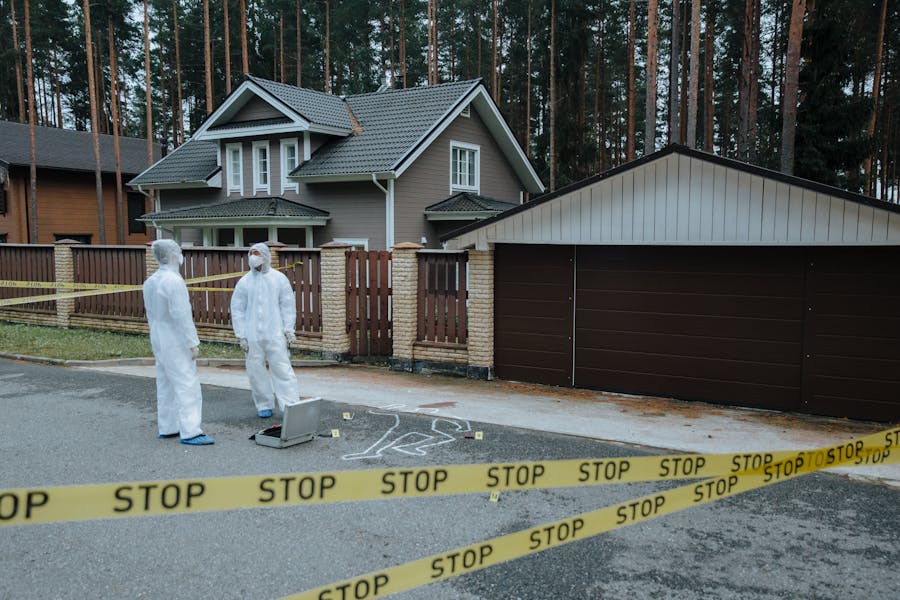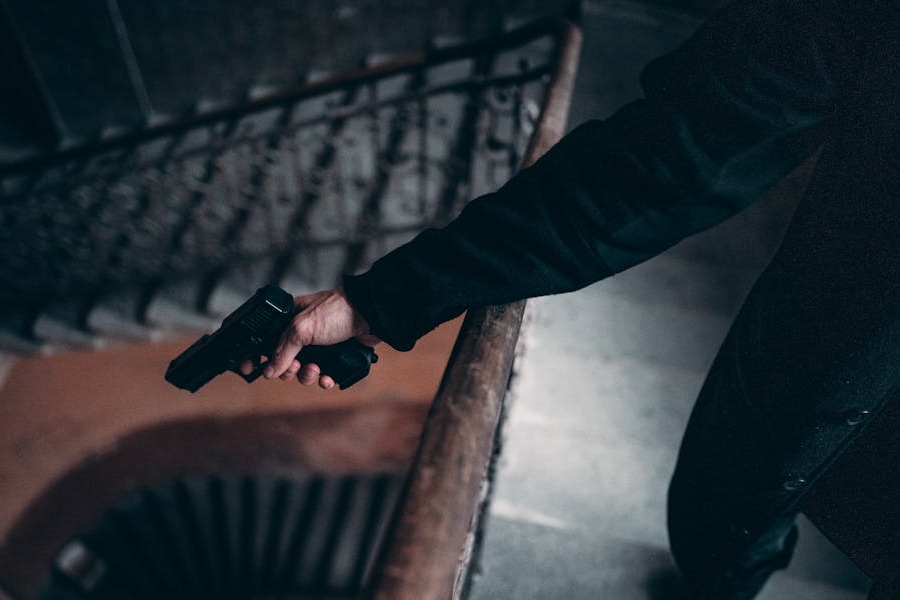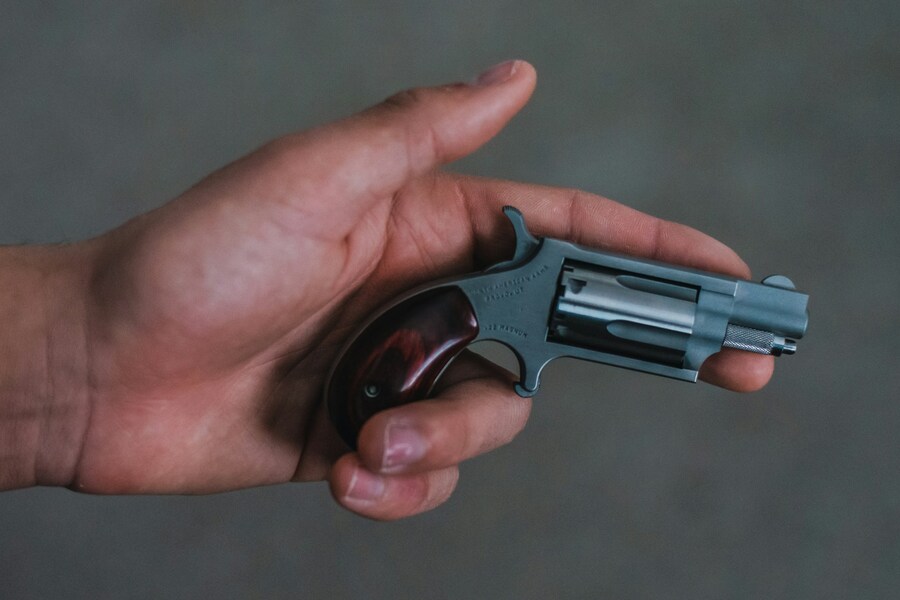Charged with First-Degree Murder (Penal Code § 189(a)) in California?

Facing first-degree murder charges in California is undoubtedly one of the most serious legal situations anyone can encounter. The stakes couldn’t be higher—your freedom, future, and very life hang in the balance. Unlike other criminal charges, first-degree murder carries penalties that can include life imprisonment without the possibility of parole or, in rare cases, the death penalty.
At David P. Shapiro Criminal Defense Attorneys, we’ve represented clients facing homicide charges in San Diego and Chula Vista. This guide provides critical information about first-degree murder in California, how it’s prosecuted, and how an experienced criminal defense attorney can help protect your rights.
What is First-Degree Murder Under California Law?
California Penal Code § 189(a) defines first-degree murder as a killing that meets specific criteria that separate it from other types of homicide. Understanding these distinctions is crucial for anyone facing murder charges.
First-degree murder in California is defined as a killing that is:
- Willful – The killing was intentional and not accidental
- Deliberate – The decision to kill was made with careful thought
- Premeditated – The killing was considered beforehand, though California law doesn’t specify a minimum time requirement for premeditation
Additionally, California law automatically classifies certain types of killings as first-degree murder, regardless of whether premeditation can be proven. These include murders committed:
- Using a destructive device or explosive
- Using a weapon of mass destruction
- Using ammunition designed primarily to penetrate metal or armor
- By poison
- By lying in wait (ambushing the victim)
- By torture
- By discharging a firearm from a motor vehicle intentionally at another person outside the vehicle with the intent to kill (drive-by shooting)
The Felony Murder Rule
California Penal Code § 189 also establishes that any killing committed during the perpetration or attempted perpetration of certain felonies constitutes first-degree murder. These felonies include:
- Arson
- Rape
- Carjacking
- Robbery
- Burglary
- Mayhem
- Kidnapping
- Train wrecking
- Torture or acts punishable under Section 206
- Sexual crimes including sodomy, oral copulation, and lewd acts with children (Sections 286, 287, 288, or 289)
This is known as the “felony murder rule,” which underwent significant changes with the passage of Senate Bill 1437 in 2018. Under the revised law, a participant in a qualifying felony where a death occurs can only be charged with murder if:
- They were the actual killer
- They aided the actual killer with intent to kill
- They were a major participant in the underlying felony and acted with reckless indifference to human life
This change has significantly limited who can be charged with felony murder compared to previous law, which allowed anyone participating in these dangerous felonies to be charged with murder if a death occurred—even if they didn’t intend for anyone to die.
Elements Prosecutors Must Prove
For a first-degree murder conviction, prosecutors must prove beyond a reasonable doubt that:
- You caused the death of another person
- You acted with malice aforethought (either express or implied)
- The killing was willful, deliberate, and premeditated, OR was committed during one of the specified felonies or by one of the designated methods
Understanding Malice Aforethought
Malice aforethought is a legal term that refers to the mental state required for murder. It can be either:
- Express malice: When you specifically intended to kill the victim
- Implied malice: When you intentionally committed an act that was dangerous to human life, knowing it was dangerous, and acting with conscious disregard for human life
Prosecutors must prove malice aforethought beyond a reasonable doubt, which distinguishes murder from manslaughter charges.
First-Degree vs. Second-Degree Murder
California Penal Code § 189(b) states simply: “All other kinds of murders are of the second degree.” This means any murder that doesn’t meet the specific criteria for first-degree murder is classified as second-degree murder.
Key differences include:
- First-degree murder: Requires premeditation, deliberation, or commission during certain felonies
- Second-degree murder: Involves malice aforethought but lacks premeditation or deliberation
This distinction significantly affects potential penalties, with first-degree murder carrying much harsher sentences.
Penalties for First-Degree Murder in California
First-degree murder carries severe penalties under California Penal Code § 190:
- 25 years to life in state prison
- Life imprisonment without the possibility of parole (LWOP) if special circumstances apply
- Death penalty in rare cases with special circumstances (though California currently has a moratorium on executions)
Special circumstances that can enhance the penalty are outlined in Penal Code § 190.2 and include:
- Multiple victims
- Murder for financial gain
- Murder of specific officials (police officers, prosecutors, judges, etc.)
- Murder that is especially heinous, atrocious, or cruel
- Murder committed during certain felonies
- Murder motivated by the victim’s race, color, religion, nationality, or country of origin
It’s worth noting that California’s death penalty is in flux. In 2019, Governor Gavin Newsom issued an executive order establishing a moratorium on executions. However, the law allowing for capital punishment remains on the books, and prosecutors can still seek the death penalty.
Defenses to First-Degree Murder Charges
Several defense strategies may be effective when facing first-degree murder charges:
Challenging Premeditation and Deliberation
Your attorney may argue that while a killing occurred, it was not planned or deliberate, potentially reducing the charge to second-degree murder or manslaughter.
Self-Defense or Defense of Others
California law recognizes your right to defend yourself or others from imminent danger of death or great bodily injury. If you reasonably believed you or someone else was in such danger, this could provide a complete defense.
Mistaken Identity or Alibi
If you were incorrectly identified as the perpetrator, your attorney can challenge witness identifications and present alibi evidence showing you were elsewhere when the crime occurred.
Challenging Forensic Evidence
Scientific evidence like DNA, fingerprints, or ballistics can sometimes be unreliable or improperly collected. Your attorney may challenge how evidence was gathered, stored, or analyzed.
Mental Health Defenses
While the “diminished capacity” defense has been largely eliminated in California, certain mental health conditions may affect your ability to form the specific intent required for first-degree murder or may support an insanity defense.
Challenging the Felony Murder Application
Under the revised felony murder rule, your attorney may argue that you don’t meet the criteria for felony murder—perhaps you weren’t the actual killer, didn’t aid with intent to kill, or weren’t a major participant acting with reckless indifference to human life.
Coerced Confessions
If law enforcement obtained your confession through coercion or without properly advising you of your Miranda rights, your attorney may move to have those statements suppressed.
What to Do (& NOT to Do) if You’ve Been Charged with Murder
First-degree murder charges require the highest level of legal defense. Here’s why:
- The complexity of homicide law demands specialized knowledge
- Effective investigation of alternative scenarios and potential defenses requires resources and expertise
- Negotiating with prosecutors for reduced charges requires experience and credibility
- Constitutional protections must be vigilantly safeguarded throughout the proceedings
- The severity of potential sentences makes every legal strategy decision crucial
Why Choose David P. Shapiro Criminal Defense Attorneys
Our San Diego criminal defense team brings specific advantages to first-degree murder cases:
- Comprehensive case analysis: We meticulously review every aspect of the prosecution’s case, identifying weaknesses and opportunities for defense
- Independent investigation: We don’t rely solely on police reports; our team conducts thorough investigations to uncover exculpatory evidence
- Expert consultation: We work with forensic specialists, medical examiners, psychologists, and other experts to challenge prosecution evidence and support your defense
- Strategic negotiation: When appropriate, we engage with prosecutors to explore charge reductions or other favorable resolutions
- Aggressive courtroom advocacy: We provide powerful representation at every stage, from preliminary hearings through trial
- Deep knowledge of local courts: Our experience in San Diego and Chula Vista courts gives us insight into local procedures and judicial tendencies
We understand that facing first-degree murder charges is overwhelming. Beyond legal representation, we provide compassionate support, clear communication, and realistic guidance throughout the process. Our goal is not only to achieve the best possible legal outcome but also to help you navigate this difficult period with dignity.
Frequently Asked Questions About First-Degree Murder Charges
Can a murder charge be reduced to manslaughter?
Yes, under certain circumstances. If we can demonstrate that you acted in the heat of passion or under a reasonable but mistaken belief in the need for self-defense (imperfect self-defense), a murder charge might be reduced to voluntary manslaughter.
How long do prosecutors have to file murder charges?
Unlike most crimes, there is no statute of limitations for murder in California. Charges can be filed at any time, even decades after the alleged crime.
Can I be charged with first-degree murder if I didn’t actually kill anyone?
Yes, under limited circumstances. Under the felony murder rule, you could be charged if you were a major participant in certain felonies that resulted in death and you acted with reckless indifference to human life. Additionally, you could be charged if you aided and abetted a murder with the intent to kill.
What is “special circumstances” murder?
Special circumstances murder refers to first-degree murder cases with specific aggravating factors listed in Penal Code § 190.2. These cases can result in sentences of life without parole or, rarely, the death penalty.
Contact a San Diego First-Degree Murder Defense Attorney Today
If you or someone you love is facing criminal charges in California, swift action is imperative. The penalties can be life altering and long lasting. Give us a call today to set up a case evaluation with one of our attorneys and learn how to best protect your freedom and future.
Too often, we see clients who “wait and see,” unsure of the legal landscape ahead, only for charges to escalate. They then find themselves backpedaling into a bad defense and an even worse lawyer. Don’t let that happen to you. Protect your freedom. Protect your future. Know your rights.
The contents of this article and blog are meant for informational and marketing purposes only and do not constitute legal advice. Viewing and/or use of the blog does not form an attorney-client relationship. No statements in this post are a guarantee, warranty, or prediction of a particular result in your case.









